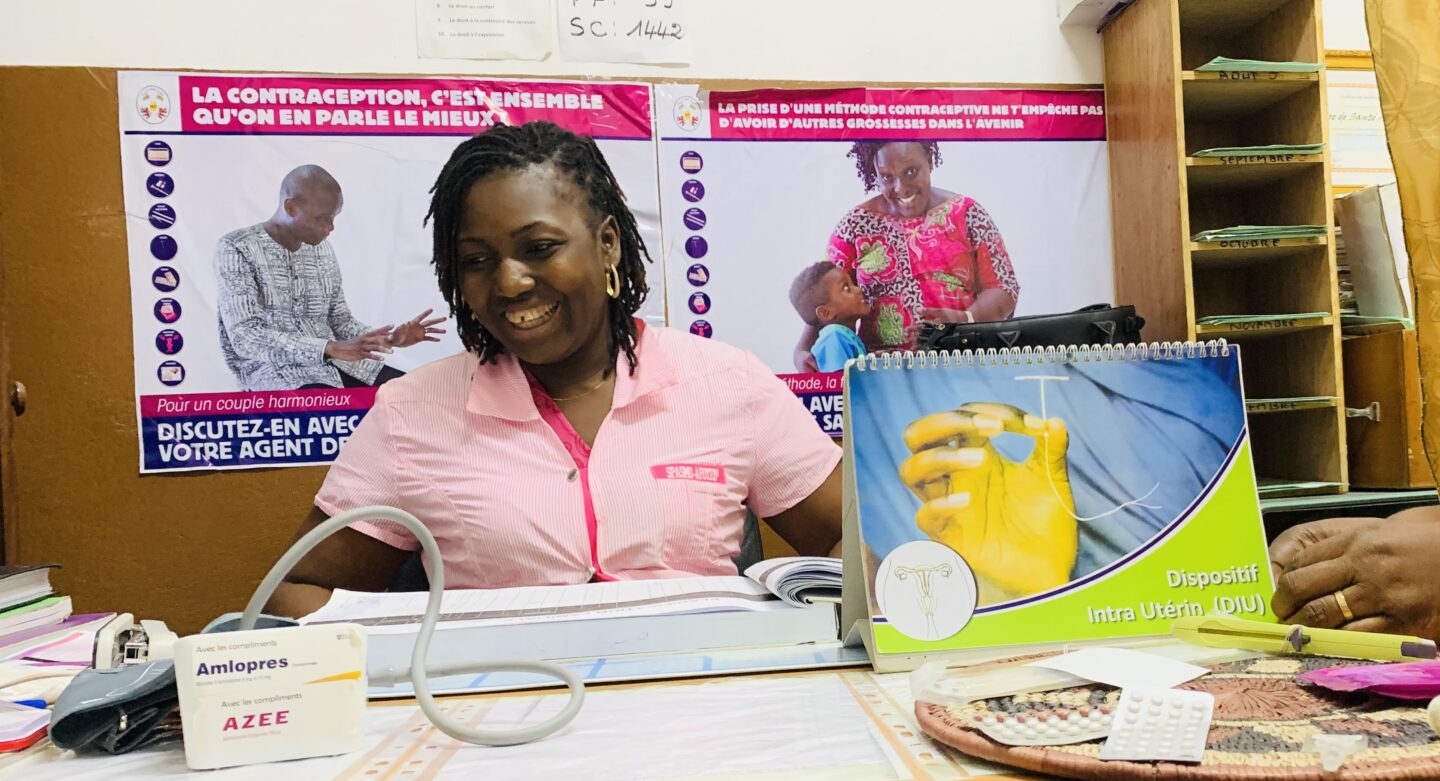Togo



Country Contact
Yaba Essien, Country Program Manager
Tel. 228 91 14 19 91
339 AGP, Rue Patrice Lumumba
Quartier Agbalépédogan
16 BP : 390
Lomé, Togo
Current and Recent Donors
Bill & Melinda Gates Foundation
CDC
Clinton Health Access Initiative
Gavi, the Vaccine Alliance
German Development Bank (KfW)
UNFPA
USAID
Helping Togolese women plan and space their pregnancies since 1989.
- Using an innovative, Jhpiego-developed training approach, 1,659 health care workers from 668 public facilities and 407 providers from 185 private clinics have had their capacity built to provide an injectable contraceptive method (depot-medroxyprogesterone acetate, also known as DMPA-SC or Sayana® Press), thereby increasing access to DMPA-SC in Togo.
- Jhpiego also worked with Togo’s Ministry of Health to develop self-injection guidelines for DMPA-SC, and trained more than 1,000 health care providers to counsel and teach women how to do DMPA-SC self-injection.
- Jhpiego trained 38 providers from 23 health facilities and 142 community agents in communication techniques and in offering youth-friendly family planning services, and reached 4,869 clients through home visits for family planning counseling.
- Using the low-dose, high-frequency approach, Jhpiego successfully trained 29 providers on infection prevention and control and 23 providers on family planning counseling across 10 emergency obstetric and newborn care facilities in Togo.
Our Technical Areas in Togo
Our Work in Togo
Access Collaborative 3.0
Under this two-year project funded by the Bill & Melinda Gates Foundation, Jhpiego is providing continuous technical assistance in the introduction and scale-up of subcutaneous depot-medroxyprogesterone acetate (DMPA-SC) in Benin, the Democratic Republic of Congo and Togo. Also known as Sayana® Press, DMPA-SC is an innovative injectable contraceptive that can be self-injected and has the potential to dramatically expand family planning access and choice when offered as part of a broad method mix. In addition to seeking to make DMPA-SC, including self-injection, more available in the three countries, the project aims to ensure provision of technical assistance, knowledge sharing, data tools, research findings and other resources to enable more than 30 countries to introduce and scale up DMPA-SC and self-injection.
Strengthening Reproductive Health and Sexual Rights
With funding from the German Development Bank (KfW) through the Ministry of Health, Public Hygiene and Universal Care, this project aims to build the capacity of staff providing sexual and reproductive health services in Kara, Togo. This project uses interactive, hands-on, teaching techniques such as clinical simulation, anatomical models and case-based learning to educate trainers on sexual and reproductive health. In turn, these trainers use a Jhpiego-developed low-dose, high-frequency approach to build capacity and enhance knowledge among health care providers in an effort to address sexual and reproductive health needs in Kara, which has a 23.8% contraceptive prevalence rate.
Engaging Male Caregivers and Supporting Successful Parenting towards Improved Immunization Outcomes and Equitable Health Services
This Gavi-funded project, operational in Pakistan and Togo, seeks to expand immunization coverage through increased male engagement. Under this award, Jhpiego is reviewing current global evidence, building consensus among national immunization stakeholders, testing select male engagement strategies to improve men’s role in caregiving and increase immunization uptake, and exploring how tested male engagement strategies can strengthen gender equitable attitudes and/or roles. Jhpiego is also examining whether and how male engagement approaches can increase rates of immunization and analyzing the cost-effectiveness and efficiency of male engagement strategies relative to current immunization demand creation strategies. Findings of this work will be widely disseminated to ensure understanding and uptake of findings by government stakeholders, immunization program design specialists among implementation partners, and Gavi secretariat and Alliance partners. These findings will also inform the development of three tools—a framework; a theory of change; and a monitoring, evaluation and learning plan—that will be used in the design and development of country-specific interventions in Togo and Pakistan for engaging male caregivers to improve immunization outcomes for children.
Global Healthcare Detection and Response: Antimicrobial Resistance in Invasive Bacterial and Respiratory Pathogens
This project aims to enhance detection and response to infectious disease threats globally by developing networks to prevent, detect and respond to infectious disease threats in health care, including antimicrobial resistance, health care-associated infections and COVID-19. In Togo, the project is partnering with the national laboratory system to improve their capacity to detect and identify emerging threats of antimicrobial resistance by: 1) providing technical assistance through a national technical working group, 2) building laboratory staff capacity through training and supervision, and 3) supporting the introduction of new testing and quality assurance methods. This project is funded by the U.S. Centers for Disease Control and Prevention and led by Global Scientific Solutions for Health.
Country Contact
Yaba Essien, Country Program Manager
Tel. 228 91 14 19 91
339 AGP, Rue Patrice Lumumba
Quartier Agbalépédogan
16 BP : 390
Lomé, Togo
Current and Recent Donors
Bill & Melinda Gates Foundation
CDC
Clinton Health Access Initiative
Gavi, the Vaccine Alliance
German Development Bank (KfW)
UNFPA
USAID